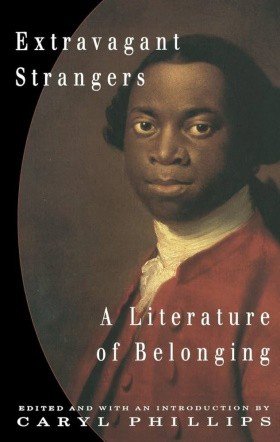James Berry was born in Boston, Jamaica. His early years were spent chiefly out of doors, ‘shut away from the world’ in the coastal village of Fair Prospect. He worked in America during his late teens, then returned to Jamaica for a brief period of time before emigrating to war-ravaged London in 1948. Berry believes that Britain’s sense of dislocation at that time enabled him, as a black Jamaican, to settle with relative ease. He arrived in London without prearranged lodging, but soon found a room in Brixton which he shared with another West Indian. Berry took to London immediately and was overwhelmed by the abundance of books and accessible libraries he found.
Berry worked as a telegraphist with Post Office International Telegraphs (now British Telecom) from 1951 to 1977, before making the decision to write full-time. Initially, he wrote short stories, but he is best known for his poetry. In 1977 Berry received a C. Day Lewis Fellowship. It was during this period, as a writer-in-residence at a London comprehensive school, that he developed a passion for tutoring and an interest in multicultural education.
In 1979 Berry published his collection Fractured Circles and in 1981 he won first prize in the National Poetry Competition for ‘Fantasy of an African Boy’. In his poetry he explores Jamaican and British cultures. He also uses both Standard English and what the poet/historian Edward Kamau Brathwaite terms ‘Nation Language’. The experience of being black in Britain is crucial to his writing, as is clearly visible in the character of ‘Lucy’, a Caribbean immigrant living in Britain whose experiences are chronicled in her letters to a friend back home in Lucy’s Letters and Loving (1982).
Other collections of Berry’s poetry include Chain of Days (1985) and When I Dance (1988), a volume of children’s poems for which he won the Signal Poetry Award in 1989. His fiction – compiled in A Thief in the Village (1987) and Anacy-Spiderman (1989) – has also been successful, and in 1985 Berry won the GLC Mary Seacole Prize for his short stories. He is a celebrated reader of his own writing and has performed on radio and television.
The two poems from Berry’s ‘Lucy’ collection reveal the immigrant’s concern with, and love for, British traditions, in this instance the Royal Family.
FROM LUCY: ENGLAN’ LADY
You ask me ’bout the lady. Me dear,
old centre here still shine
with Queen. She affec’ the place
like the sun: not comin’ out oft’n
an’ when it happ’n everybody’s out
smilin’, as she wave a han’
like a seagull flyin’ slow slow.
An’ you know she come from
dust free rooms an’ velvet
an’ diamond. She make you feel
this an-an’-on town, London,
where long long time deeper than mind.
An’ han’s after han’s die away,
makin’ streets, putt’n’ up bricks,
a piece of brass, a piece of wood
an’ plantin’ trees: an’ it give
a car a halfday job gett’n’ through.
An’ Leela, darlin’, no, I never
meet the Queen in flesh. Yet
sometimes, deep deep, I sorry for her.
Everybody expec’ a show
from her, like she a space touris’
on earth. An’ darlin’, unless
you can go home an’ scratch up
you’ husban’, it mus’ be hard
strain keepin’ good graces for
all hypocrite faces.
Anyhow, me dear, you know what
ole time people say,
‘Bird sing sweet for its nest’.
FROM LUCY: CARNIVAL WEDD’N’, 1981
(marriage of Prince of Wales and Lady Diana Spencer)
Leela, bes’ pop girl over all Brit’n
splice up the number one bachelor catch.

























